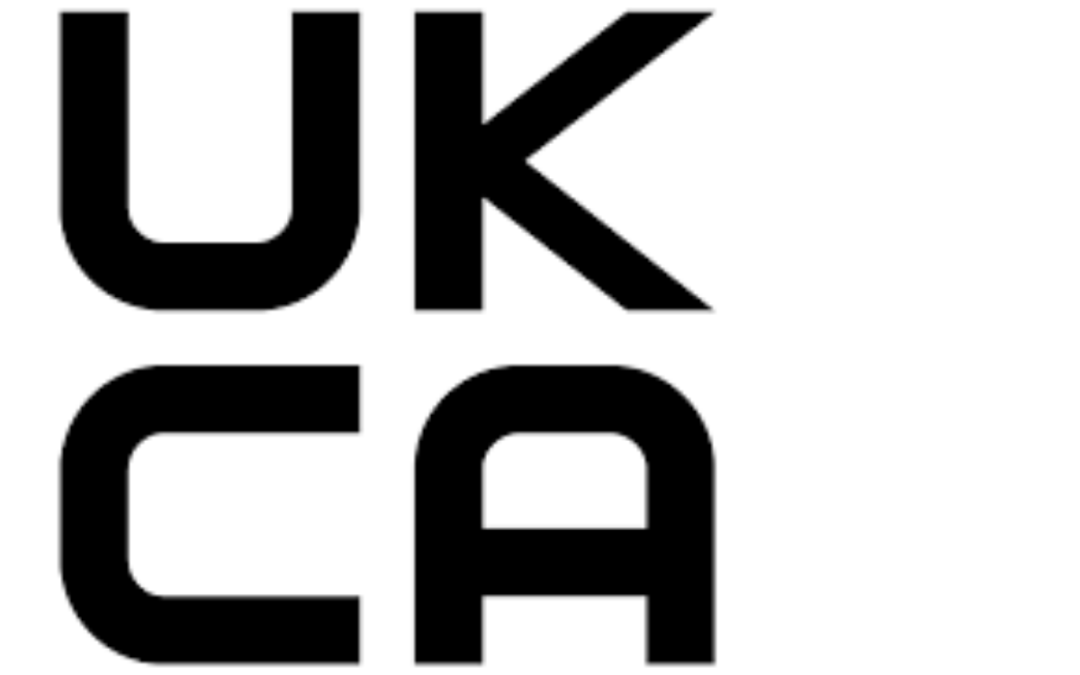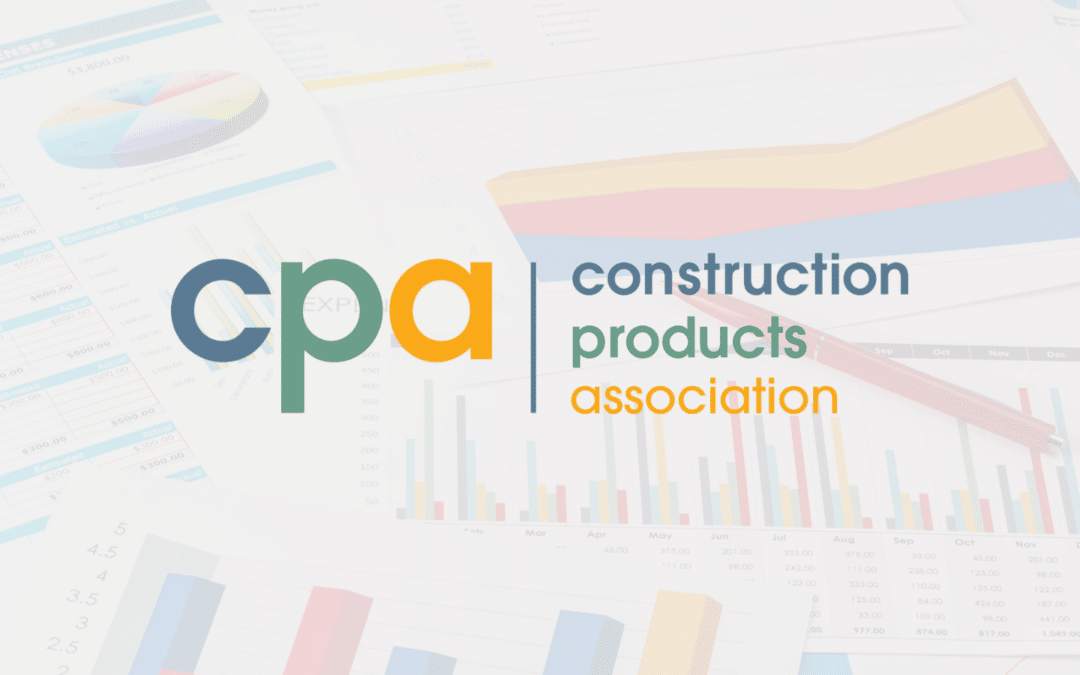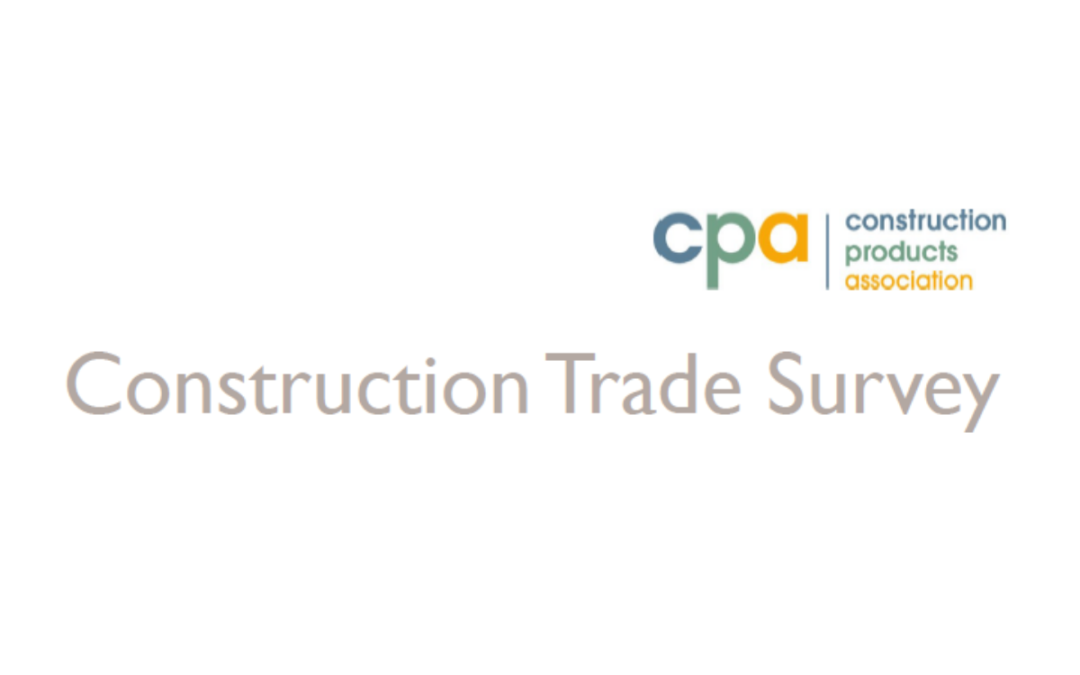
by Clair Mooney | Jun 2, 2021 | Main News Feed, Technical
BEIS has issued an update to “Using the UKCA marking” guidance last issued on 31 December 2020. More information has been added on when a you can self-declare along with updates to the ‘Relevant UK and EU legislation” to remove inaccurate legislation.
The updated guidance can be viewed here.
While this is general guidance there are several references to separate guidance being available for construction products which should be read. These link back to guidance issued in September 2020 dealing with the two UK Statutory Instruments – Construction Products (Amendment etc.) (EU Exit) Regulations 2019 and 2020.
Notable differences in the text are as follows:
On page 2, Selling goods in Great Britain
The following has been added:
‘The circumstances in which you can use self-declaration of conformity for UKCA marking are the same as for CE marking. If you were able to self-declare conformity for the CE marking, you will be able to do the same for the UKCA marking.
Check the list of areas where self-declaration is permitted.’
On page 3, When to use the UKCA marking
The following has been added:
‘This does not apply to existing stock, for example if your good was fully manufactured, CE marked and ready to be placed on the market before 1 January 2021. In these cases, your good can still be sold in Great Britain with a CE marking even if covered by a certificate of conformity issued by a UK body before 1st January 2021. These goods will need to be placed on the market before 31 December 2021.
On page 3, How to use UKCA marking, Placing the UKCA marking, General Rules
The following has been added:
A product may have additional markings and marks, as long as they:
-
- Fulfil a different function from that of the UKCA marking
- Are not likely to cause confusion with the UKCA marking
- Do not reduce the legibility and visibility of the UKCA marking.
On page 4, Rules for using the UKCA image:
The following has been added:
‘The UKCA marking can take different forms (for example, the colour does not have to be solid), as long as it remains visible, legible and maintains the required proportions.’
On page 5, UK Declaration of Conformity
Please note that construction products manufacturers have a Declaration of Performance so CPA recommends that this also applies to DoPs
The following sentence has been added:
‘We recommend that manufacturers have a separate UK Declaration of Conformity to their EU Declaration of Conformity.’
On pages 6-7 there is a new table titled ‘Legislative areas where self-declaration of conformity for UKCA marking is permitted’.
This lists the CPR with a product scope of AVCP System 4.
On page 8, there is a new item ‘Transitional measures relating to the UKCA marking.’
The last sentence categorically states that these transitional arrangements do not apply to construction products.
The following guidance issued in the original document “Using the UKCA mark from 1 January 2021” dated 1 September 2020 now excludes the following text:
Future use of markings in the UK
From 1 January 2022, the CE marking will not be recognised in Great Britain for areas covered by this guidance and the UKCA marking. However, a product bearing the CE marking would still be valid for sale in the UK so long as it was also UKCA marked and complied with the relevant UK rules.

by Clair Mooney | Jun 2, 2021 | Main News Feed
The Department for Health has launched a new toolkit for employers to help ensure employees get reliable information about COVID-19 vaccines. Several major businesses, including Asda, IKEA and Santander, have already pledged to promote vaccine uptake with their employees and to allow flexibility for staff to get vaccinated during work hours.
Access the toolkit to get materials for you to run internal awareness campaigns promoting the benefits of vaccination, including key messages, posters, fact sheets and videos providing accurate up to date information. The government is calling on as many employers as possible to join the campaign and support the efforts to continue to bring the nation out of lockdown.

by Clair Mooney | May 28, 2021 | Market data
CPA has issued its latest weekly update, which is available to members
here. The three updated issues in Pages 1-2 of the weekly update are:
- Zoopla UK House Price Index (April 2021)
- Speedy Hire Annual Results (May 2021)
- British Land Annual Results (May 2021)
Subsequent pages have existing construction data that remain relevant.
The CPA’s latest forecasts (Spring 2021) is available here.

by Clair Mooney | May 27, 2021 | Main News Feed
As part of a new incentive scheme, employers in England can claim £1,000 for every T-Level student they host on a high-quality industry placement https://www.gov.uk/government/news/cash-boost-for-t-levels.
The T Level employer incentive fund recognises the impact of the pandemic on many businesses, and has been designed to help cover financial constraints employers may face as a barrier to hosting placements in the short term.
Employers will be able to claim £1,000 for up to 20 students they host on a 45 day (315 hour) industry placement, from now until July 2022. The incentive offers businesses an excellent opportunity to tap into the emerging talent pipeline, whilst supporting the skilled workforce of the future.
Those interested in accessing the incentive payments and offering T-Level industry placements should contact: 08000 150 600 (choose option 4) or fill out an industry placement contact form online: Next steps | T Levels
T Levels uniquely combine classroom study with industry placements, generating the skilled workforce that businesses need for the future.
This Employer Guide helps businesses understand how to host an industry placement. This includes details on what is expected of employers during the placement.

by Clair Mooney | May 27, 2021 | Skills
The deadline for employers to apply for the incentive payment for new apprentices hired between 1 August 2020 and March 2021 is approaching. Eligible employers must apply for their incentive payment by 31 May 2021.
Incentive payment for apprentices who joined organisations before 1 April 2021 are:
- Employers with apprentices who have a contract of employment start date between 1 August 2020 and 31 March 2021 and who also have a practical period (training) start date between 1 August 2020 and 31 May 2021 are eligible for an incentive payment
- For new apprentices aged 16 to 24, employers will receive £2,000
- For new apprentices aged 25 and over, employers will receive £1,500
- Employers must apply for these apprentices by the end of 31 May 2021
- Employers can visit our guidance page for more details.
Employers can apply for the incentive payment via the Finances section in their apprenticeship service account. For a walk-through of the process, employers can watch the support video.
There are six steps employers need to have completed before they apply for an incentive payment for hiring a new apprentice:
- They need to have registered an account on the apprenticeship service
- If they do not pay the apprenticeship levy, they need to have reserved funds in their apprenticeship service account
- They need to have recruited an apprentice
- They need to have added their apprentice to their apprenticeship service account
- They need to have agreed a start date for apprenticeship training to begin with their training provider
- They need to have accepted the latest version of the Education and Skills Funding Agency employer agreement
If employers require support with any of these steps, they can watch the how-to videos or visit the help portal, where they can access help articles, webchat with an adviser, call or text the helpline, or email the helpdesk.
Incentive payment for apprentices who join organisations from 1 April 2021 have been increased for hiring a new apprentice. Employers could receive £3,000 for new apprentices of any age who join their organisation from 1 April 2021 to 30 September 2021. Visit the guidance page for more details.

by Clair Mooney | May 27, 2021 | Market data
According to the latest Trade Survey from the Construction Products Association, the recovery of the construction industry gathered momentum and was broad-based in the first quarter of 2021.
Construction product manufacturers on both the heavy side and light side recorded a quarterly rise in sales in Q1, whilst SME building contractors and chartered surveyors saw widespread growth across the sector after workloads rebounded in industrial and commercial. Nevertheless, private housing and RM&I remained the main drivers of construction activity during the first quarter due to government housing policies and growing demand for properties with more outdoor and office/study space as a result from increased homeworking.
FIS members can access the full results here.

by Clair Mooney | May 27, 2021 | Main News Feed
The Small Business Commissioner, Philip King, joined a meeting with Build UK members (including FIS CEO Iain McIlwee) earlier this month to discuss the changes to the Prompt Payment Code (PPC). PPC is a voluntary code of practice for businesses, administered by the Office of the Small Business Commissioner (SBC) on behalf of BEIS. It was established in December 2008 and sets standards for payment practices between organisations of any size and their suppliers. Being a signatory is often a requirement (or at least a consideration) for projects procured through Government.
As it stands, large businesses that have submitted data to Government’s Payment Practices Portal revealing payment of less than 90% of invoices within 60 days are suspended from the Code, until they achieve at least that percentage. If a suspended signatory fails to engage with the PPC administrators, or compliance is not achieved within a reasonable timescale, the signatory risks being permanently removed from the Code.
Key changes include the new requirement for signatories to pay 95% of invoices from businesses with fewer than 50 employees within 30 days from 1 July 2021. The meeting looked at definitions of employment (in this case it is referring to PAYE employment and not taking into account self-employed or gang/agency workers) and the challenge of identifying suppliers. It was recognised that signatories of the code can use the Common Assessment Standard to identify suppliers with fewer than 50 employees. Question 10 asks ‘Are you a Micro, a Small or a Medium‐Sized Enterprise?’ and any suppliers that state they are ‘Micro’ or ‘Small’ have fewer than 50 employees, in accordance with the EC definitions used within the standard, and this information is independently verified by a certification body on an annual basis.
Commenting on the meeting, FIS CEO stated
“It was good to hear that the PPC is starting to ratchet in to focus on flow of monies through the supply chain and to hear Philip signing off in such a positive way. In the meeting we did take the opportunity to reinforce that late payment and fair payment are linked, but the subject is more complex. We look forward to continuing this discussion with the new Commissioner, Liz Barclay, when she takes over in the summer”.
Build UK has produced a summary of the key points which answers the range of queries raised by members.

by Clair Mooney | May 27, 2021 | Skills
CITB has confirmed that Levy rates will remain the same for 2022-25 under proposals that its Board confirmed on 21 May.
CITB’s recent consultation with employers and leading industry figures supported draft proposals and these have now been agreed. The Levy will remain at pre-Covid rate of 0.35% for PAYE staff at 1.25% for CIS subcontractors.
Around 40,000 employers with a wage bill lower than £120,000 will still be exempt, with 14,000 having their Levy assessment halved if their wage bill is between £120,000 and £400,000.
From Monday 14 June to Sunday 15 August, CITB will be consulting on these Consensus proposals, where they will be asking a sample of Levy payers whether they agree that its proposals are necessary to encourage adequate training in our industry over the next three years. The last Consensus was in 2017, with 76.9% agreed with CITB’s plans.
You can read more about who takes part in the CITB consultations here, and more details about the Consensus process here.
SkillsBuild – are you involved?
FIS would like to hear from members who have individuals registered for the 2021 SkillsBuild Qualifiers, it would be good to follow their journey and other FIS members may also be able to offer support. Please supply the details of your organisation, the name of the individual(s), the occupation they are competing in, the date and venue of the qualifier to georgeswann@thefis.org

by Clair Mooney | May 26, 2021 | Market data, Material Shortages
The finishes and interiors sector is facing unprecedented material shortages and inflation in a number of areas (including gypsum products, steel, fixings, insulation, sealants and adhesives and timber). In the wake of this, FIS is urging the supply chain to heed the advice of the Construction Leadership Council and apply the lessons learned in 2020 about working in partnership and collaboration. This is a issue for the entire supply chain, but specialist contractors are reporting these acute challenges are being ignored in the wake of pressure to simply maintain programme. This is unacceptable, we need to be working together, alert and reactive to the challenges on the ground and focussed on the very real risks of undermining specifications, warranties and even compliance and, at the same time, destroying businesses in our rush to get the job done.
Too often in difficult times, construction gets contractual and adopts a siege mentality, parcelling up and forcing risk down the supply chain with distorted standard contracts that include fixed prices with no scope for fluctuation and rely on overly punitive delay clauses to force people to press on at all costs. The much talked about transformation needs to be built on sustainable and supportive supply chain partnerships and must start now.
We need complete transparency and clear communication from suppliers and to support a structured dialogue with clients, working together to help them to understand that these events are beyond the control of individual companies and ensuring that we work together, flexibly, to resolve and manage supply and pricing issues rather than leaving SMEs in the supply chain to swallow all of this risk.
Our supply chain has had an unprecedented and difficult year, we need to nurture it back to health, transcend these old and punitive ways or we will drive people out of business to the detriment of all.
FIS is maintaining information on shortages and their impact on the supply chain on here. If you feel you are being treated unfairly or have information to share or require any information to support your negotiations with clients, please don’t hesitate to call Iain McIlwee on 07792 959 481 or email iainmcilwee@thefis.org
The Construction Leadership Council has also issued a statement regarding shortages, which can be read here
FIS Webinar 15th June, Midday – 1pm: Managing your business in a time of shortage – book your place here
FIS is urging all companies in the supply chain to support the Construction Leadership Council endorsed Conflict Avoidance Pledge as a demonstration of commitment to a healthier approach to working together as a supply chain. Sign the Pledge Here.

by Clair Mooney | May 26, 2021 | Sustainability
This year, the UK government has partnered with business owners and respected climate groups to help businesses to cut carbon emissions and protect the planet. Whatever size your business, your commitment could make a real difference – to your business, to your customers, to your community, to the planet – and to your energy bills!
The UK government has created the UK Business Climate Hub, a campaign that asks UK small businesses of up to 250 employees to join the fight against climate change by committing to reducing their greenhouse gas emissions.
Top reasons to cut carbon emissions:
Grow your business
It can be hard to think as far as 2030 when we’re all building back from coronavirus. But cutting emissions can mean saving money and give you a competitive advantage today. You will also be able to display a logo to show your commitment, attracting the growing number of customers for whom climate change really matters.
Future-proof your business
The UK is changing. For example, by 2030 you won’t be able to buy new petrol and diesel cars and vans in the UK, while zero-emission vehicles could support 40,000 jobs. Getting ahead of other countries like this will create new opportunities here in the UK. Is your business ready?
Be part of the solution
We all want to create a better planet, but it can be hard to know where to start. Through this commitment, join other businesses, get tips, make a plan, and be confident that you are really making a difference.
Become one of thousands of small business climate leaders across the UK this year and commit today at the UK Business Climate Hub.

by Clair Mooney | May 24, 2021 | Sustainability
The Construction Leadership Council (CLC)’s Net Zero workstream, CO2nstruct Zero is seeking views on how the industry should demonstrate progress on its collective Net Zero journey.
The findings will feed into the creation of a performance framework – a suite of metrics, targets, milestones and commitments – that the industry can use to measure impact and understand when and where further action needs to be taken.
The overarching framework will amplify many of the goals and initiatives already shared in this space, and ensure industry speaks in a single and unified voice.
Commenting on the survey’s launch, Andrew Griffith MP, the UK’s Net Zero business champion, said:
“The construction industry has a vital role to play in achieving society’s Net Zero ambitions and how we measure its progress will be vital to, not only meeting our targets, but ensuring we bring all businesses – large and small – on the journey.”
Andy Mitchell, co-chair of the Construction Leadership Council (CLC), said:
“A comprehensive and cohesive approach to measuring Net Zero progress is the foundation for so much more. Most importantly, it will ensure industry can be both challenged and praised. I’d urge all organisations and business groups working in our sector to complete the survey today and help us shape a Net Zero future.”
A copy of the metrics framework is available here.
A spreadsheet has been prepared by the CLC to allow you to comment on the proposed metrics.
Respondants are asked to provide your feedback on the four questions for each metric that you wish to comment on in the relevant box. A spreadsheet has been developed to help structure response here.
Please send your responses to iainmcilwee@thefis.org or call Iain on 07792 959 481 to discuss options and possibilities. Feedback is required by Wednesday 9 June.

by Clair Mooney | May 21, 2021 | Membership, Sustainability, Technical
This year already seems to be disappearing at pace and whilst COVID-19 is thankfully starting to dominate less, we are now looking at material and labour shortages and cash tightening. But beyond the immediate pressures, a positive is that conversations are intensifying around change – transformation driven by core values of quality and sustainability.
At FIS we are keen to support this change, frankly it is why we exist – we are owned, effectively as a co-operative, by our community to help make the market better for you and get our members specified on jobs. In this work we are constantly asking ourselves and using our network to interrogate:
- How can we help YOU today? By producing toolkits, factsheets, guides, honing advice, helping you secure funding etc
- How can WE be better tomorrow by working together as a community and being more than the sum of our parts? Sharing, consolidating, research, standardising, benchmarking, finding economies of scale etc
- How can THEY help us? How do we need to INFLUENCE the world around us to ensure success? Research, engagement, best practice, respect, lobbying, representation, negotiation and communication (key to this is showing we have the support of our industry, effectively researched and backed up views and being present when the debate happens)
To this end and off the back of a growing and increasingly engaged membership, our Board have decided to invest in two new roles. The first focussed on the vetting and technical support provided by FIS and the second to look at the opportunity that the net zero and wider sustainability work presents in terms of driving early engagement and improving the reputation of the sector as a whole and specifically our membership as value driven businesses and leaders. This second role is on a contingent basis initially, but we hope with continued growth and support we will be able to develop the individual and the role into a permanent role. Initially we would be prepared to consider secondment options to test and support our views about the ongoing requirement.
Both of these roles will help us to develop resource and add to the collective wisdom – helping us not just to do, but to have the time to listen and improve our understanding of our community and ultimately the customers of our sector and will crucially adds weight to our ability to influence.
Please do share an pass on details to help FIS better support you. Together we are stronger.

by Clair Mooney | May 21, 2021 | Main News Feed
As an employer it will be your responsibility to check that an individual has a right to work (this applies to both employed and contracted workers). You could face a civil penalty if you employ an illegal worker and have not carried out a correct right to work check. FIS has updated its Employment & Workforce Management Toolkit to give you access to the most up to date information. This includes access to a webinar, run in collaboration with the Association of Labour Providers and Stronger Together to help FIS members understand the responsibility and steps that must be taken to discharge this responsibility.
At the same time, it is vital that you consider Modern Slavery. A recent report by the Association of Labour Providers reflects that, despite Right to Work Checks being more onerous, the likely shortages and background means that new immigration rules are likely to have an adverse impact on Modern Slavery. Modern Slavery and Right to Work should not be confused, someone can have the Right to Work, but still be operating under coercion.
You can access the updated FIS Employment and Workforce Management Toolkit here
You can access the updated FIS Modern Slavery Toolkit here
You can access a recent recording of our webinar on Modern Slavery and Right to Work Checks here

by Clair Mooney | May 21, 2021 | Insurance, Main News Feed
FIS has become acutely aware of the growing issues within our supply chain regarding requirement, availability, and escalating cost of insurance (particularly professional indemnity), but also overall concern regarding support for our sector from the insurance industry. This has been widely reported across construction with the latest report from the Construction Leadership Council identifying that 55% of businesses responding had been unable to secure the level of cover that they wanted to buy.
FIS is exploring the possibility of developing a tailored, comprehensive, insurance solution aligned to the risk management principles identified in our FIS Product Process People Quality Framework that ultimately fairly prices risk and delivers value for money to our community. Through this process FIS intends to challenge the market by interrogating claims history and policy wording with a view to supporting a more structured and informed dialogue, address some of the trust issues that have built up and ultimately look at how we best share risk with the insurance sector.
Insurance is the ultimate trust based sector – premiums go up when trust goes down. Our remit from the Board is to challenge and, if necessary, disrupt and we are considering a number of potentially radical options, even the possibility of setting up a mutual insurance offering that ultimately would be owned by the industry.
We are not going to run before we can walk, but wanted to give you a bit of a heads up as to where this may go. Key to supporting change is information – it is critical now that we build on the anecdotal information members have shared and use hard stats to challenge and, if necessary, to disrupt insurance provision for our sector. So to this end please complete this short survey on insurance, even if you are perfectly happy with the support you are getting, we need a clear picture and the full range of views to understand scale and identify ground truths and ultimately support reform.
The survey is available here, should take no more than 5 minutes to complete and we are requesting responses by close of play on Thursday 27 May.
For more information on insurance, visit the FIS Business & Taxation Toolkit here

by Clair Mooney | May 21, 2021 | Market data
CPA has issued its latest weekly update, which is available to members here. The updated issues are in Pages 1-6 of the weekly update including:
- IHS Markit/CIPS Flash UK PMI (May 2021)
- ONS UK Construction Employment (2021 Q1)
- ONS/Land Registry House Prices by Region (March 2021)
- Rightmove House Price Index (May 2021)
- HMRC UK Property Transactions (April 2021)
- Vistry Group Trading Update (May 2021)
- Kingfisher Trading Update (May 2021)
Subsequent pages have existing construction data that remain relevant.
The CPA’s latest forecasts (Spring 2021) is available here.

by Clair Mooney | May 21, 2021 | Building Safety Act, Health and Safety, Technical
The government has taken the next step to ensure materials used to build the nation’s homes are safe and tested properly, by announcing the appointment of two experts to lead an independent review of the system for testing construction products.
Paul Morrell OBE will be the chair of the independent panel, along with legal expert Anneliese Day QC. The review will examine how to strengthen the current system for testing construction products to provide confidence that these materials are safe and perform as marketed. The panel will engage with a wide range of stakeholders with a report published later this year with recommendations.
More information is available at www.gov.uk/government/news/independent-experts-to-review-safety-of-construction-materials

by Clair Mooney | May 20, 2021 | Health and Safety
Today FIS hosted a webinar on covering the topics of Right to Work and Modern Slavery. Delegates were made aware that they are two very different and important subjects and should not be confused.
From July this year, in line with the new points based immigration system, all employers will be required to conduct right to work checks to ensure that their workforce is legal to work in the UK. Remember EU workers (excluding the Republic of Ireland) who have not applied through the settlement scheme by the 30 June will not be legal workers and this may have serious implications for your business. Beyond your legal responsibility to ensure someone is legal to work, it is also vital that we look for and ensure that our workforce is not exploiting individuals through modern slavery. The cost and implications of getting it wrong are serious.
FIS was joined by experts Pamela Zielinski, Construction Programme Manager from Stronger Together and Joanne Young a consultant for the Association of Labour Providers who discussed the risks and how to manage them. The presentations covered:
1. Right To Work offences and sanctions
2. The statutory excuse
3. Manual right to work checks
4. Online right to work checks
5. Impact of coronavirus on RTW checks
6. Routes to work in the UK
7. EU Workers – the grace period
8. Changes from June
9. Retrospective checks
10. How to identify Modern Slavery, what to do if you suspect and the risk of getting it wrong
Visit the FIS Modern Slavery Toolkit here

by Clair Mooney | May 20, 2021 | Skills
Last week the Government outlined its legislative agenda for 2021‐22, which included the
Skills and Post‐16 Education Bill as part of the Prime Minister’s pledge for a ‘
skills revolution’ in England. With the aim of bringing the skills and education system closer to the employer market, the Bill details significant reforms to post‐16 education and training, including the Lifetime Skills Guarantee to enable easier retraining for individuals, greater influence for employers in planning publicly‐funded training programmes, and reforms to the student finance system.
Prime Minister Boris Johnson has said these new laws “are the rocket fuel that we need to level up this country and ensure equal opportunities for all”. Education secretary Gavin Williamson added: “Through legislation, our vision is to transform the sector (Education and Training) and expand opportunity right across the country, so that more people can get the skills they need to get good jobs.”
The main benefits of the Skills Bill will be:
- Offering adults across the country the opportunity to retrain in later life through the lifetime skills guarantee, helping them to gain in demand skills and open up further job opportunities.
- Realigning the system around the needs of employers so that people are trained for the skills gaps (roles that have been vacant for a long time) that exist now and, in the future, in sectors the economy needs including construction, digital, clean energy and manufacturing.
- Improving the quality of training available by making sure that providers are better run, qualifications are better regulated, and that providers’ performance can be effectively assessed.

by Clair Mooney | May 20, 2021 | Skills
The results of the third cross-industry ‘People Survey’, carried out by Build UK on behalf of the Construction Leadership Council (CLC) in April, have now been published. Providing an up to date snapshot of the ongoing impact of the coronavirus pandemic on the construction workforce, Maintaining Employment in Construction indicates that there will be a reduction of 1.2% in the size of the workforce by July. However, the number of apprentices employed is expected to increase by 2.7 % over the next three months, and the number of graduates taken on this September is expected to be 17% higher than last September.
Listed up front in the report the data highlights the following:
- A small number of job losses is expected over the next three months
- Anticipated change in the workforce for specialist contractors between April and July 2021 11.4%
- There is anticipated to be a slight reduction in the number of EU workers
- Overall the number of apprentices employed is expected to increase over the next three months
- The number of graduates taken on this September is expected to be higher than last September
- On average companies are still expecting to lose a third of their Apprenticeship Levy due to not being able to spend it within the timeframe
- Most companies have introduced some form of health and safety training related to COVID-19
Commenting on the findings, FIS CEO Iain McIlwee stated:
“With this report it is important to look beyond the headlines, the data and summary provided reflects wider construction and it shows a fairly stable picture. When we look beyond the surface at the Specialist Contractors, it is a different story. Plans are to scale the workforce up by over 10% between July and April and that is going to be tough when we know that immigration is tight and we still have the unknown impact of the July Right to Work checks and the Settlement Scheme and travel opening up for people who may not have seen their family for months and be keen to extend their holidays. At FIS we remain concerned that labour is and will remain short. The apprentice numbers are encouraging, but a drop in the ocean for our sector where, even if the immigration system has no impact on the existing workforce, our domestic recruitment target doubles. We need to be conscious of this when planning and pricing work in the coming months and longer term there needs to be a huge cultural change in the way that we recruit and train across the UK.”
Download the results here

by Clair Mooney | May 20, 2021 | Fairness, Inclusivity and Respect (FIR), Main News Feed, Sustainability
A half day Women in Construction event, hosted by the Department for International Trade Sweden, will be taking place on Wedneday 26 May to facilitate knowledge exchange, stimulate ideas and give UK and Swedish stakeholders’ insight into the two markets.
Build UK Chief Executive Suzannah Nichol will be a keynote speaker at the event, which will feature panel discussions with stakeholders from the UK and Sweden. Attendance at the virtual event is free and you can register online here.
A range of speakers, from the private sector, civil society and other organisations, will offer their perspectives on the markets, both in the UK and in Sweden. Together, the panellists will discuss their experiences and the challenges they face as women in their professions, in the office and on site. The speakers, from both Sweden and the UK, will give their unique insights into the differences and similarities in the two markets.




















